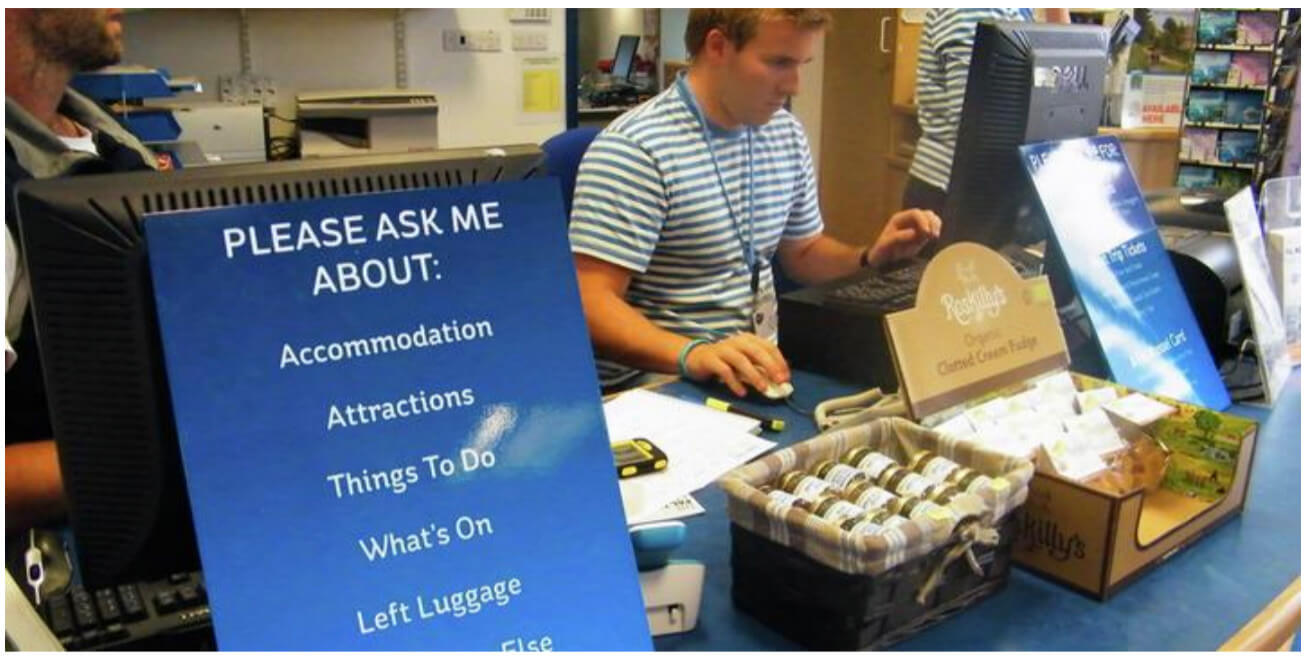SITXCCS010 – Provide visitor information
This unit will teach you how to;
- Access and update visitor information
- Provide information to visitors
- Seek feedback on information provision
Information
Information is the mainstay of most industries in today’s world. Organisations need information in order to determine what product or service to offer, what price to sell it at, where they should be located and so on. Equally consumers need information in order to make decisions about what to buy and who to buy from.
The tourism industry is one that offers ‘intangible’ products and services – that is; it is not normally a physical product that you can touch and take home, useful for many years to come. It is a service that once provided cannot be used again. For example when a customer purchases a ticket on an airline they are not actually buying the seat itself, rather they are paying for the right to use that seat in order to get from point A to point B. When booking a hotel room they are not buying the room or the bed – just the right to use it for a given period of time.
Once the service has been supplied the customer has very little to show for the money they spent aside from an album of photos of their holiday and a pocketful of memories – memories that could be either good or bad depending on the quality of information they receive.
Providing information accurately is therefore a very important aspect of your role; for example – visitors arriving in Cairns, in January, from half way around the world for what they believe will be a sunny, adventured filled holiday will not be pleased when they discover that it is monsoon season and it pours with rain during their entire stay. A word of advice from a travel professional may have convinced them to change their date of travel to a time when the weather is better!
So in the tourism industry information for customers is paramount and can contribute greatly to their travel experience.
Access and update visitor information
As you may, by now, have gathered from studying previous units; the tourism industry is vast and covers an enormous range of information needs. Where to find this information is an important part of working successfully in the industry and the information you provide must be detailed and above accurate to ensure that customers can make the best possible choices.
Sources of visitor information
There are almost limitless sources of information in today’s world of technology and mobile communication; some better (and more accurate than others). Some of these are (but are not limited to);
- Internet – We begin with a note of caution! Accessing and updating information on the World Wide Web is not a difficult task. Endless information on all manner of subjects is freely available at the press of a key. Having said that it is important that care is taken over where you get your information – just because you found it on the internet doesn’t necessarily mean the information sourced there is correct. Sources on the internet are not all official and anyone who has the time can upload information outlining their personal views and understanding on any given subject. While the internet is an excellent and freely available source of information, for business use, only those sites approved of by product or service operators & suppliers, government or regional councils etc should be used.
- Social Media and Mobile Applications – this is an endless source of information people from all over the world posting information about their travel experiences as well as formal sites that provide useful information. Apps such as Trip Advisor can give you a good insight into a destination or a specific product or service. Once again, care should be taken however, as the opinions posted on these sites are just that; a person’s personal opinion.
- Liaison with other organisations and suppliers. Other organisations such as industry associations, clubs or suppliers can be an excellent source of information. Information received from these sources will usually be very specific depending on the nature of the association or club. For example:
…continued in learner guide ….
